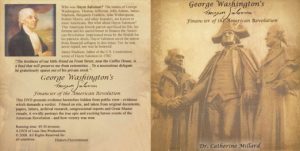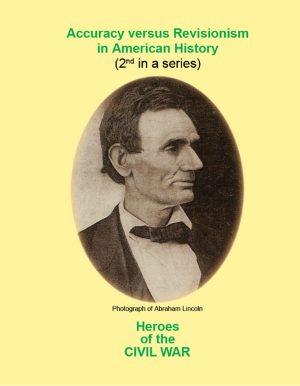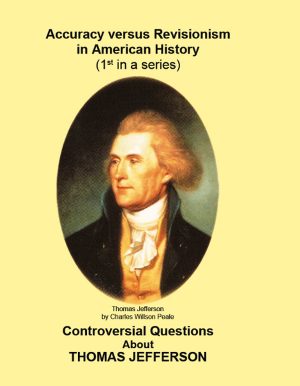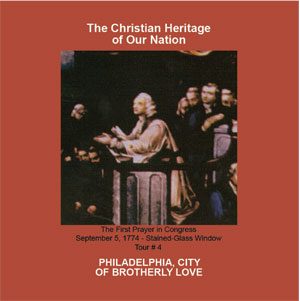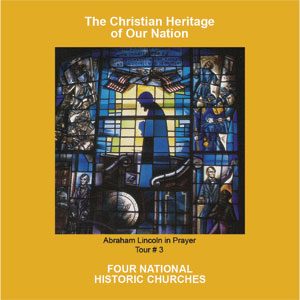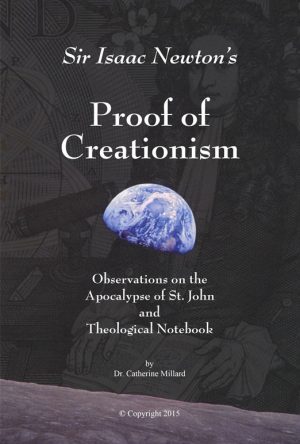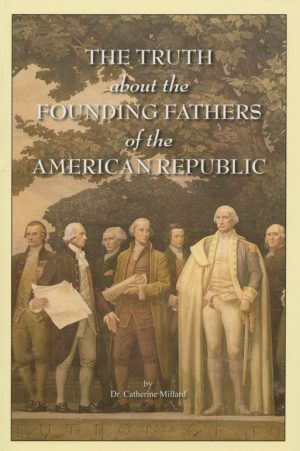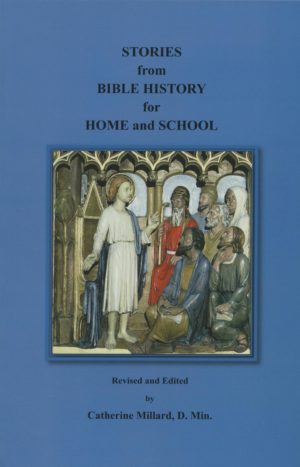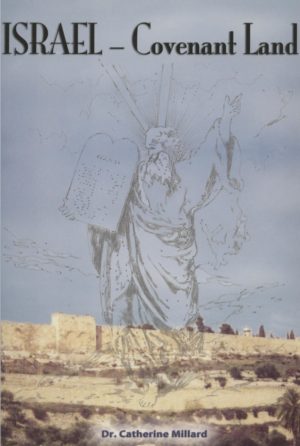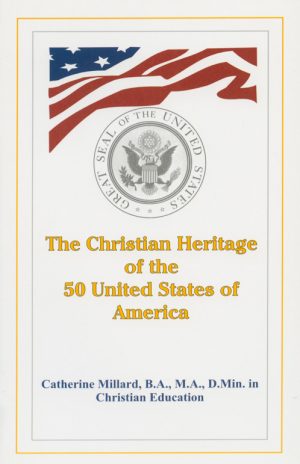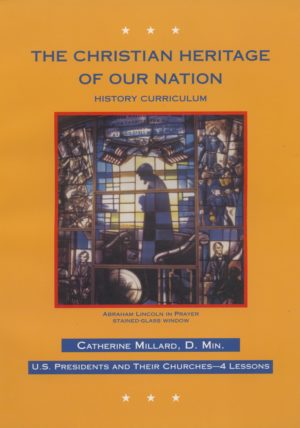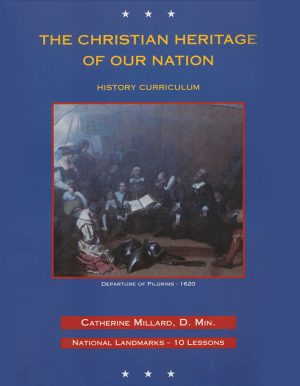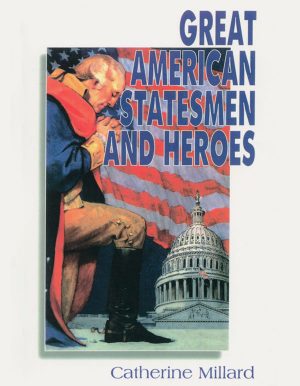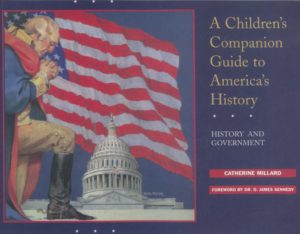“The Reciprocal Influence of Civil Policy and Religious Duty”
Sermon of Rev. William White, D.D., Bishop of the Protestant Episcopal Church in the Commonwealth of Pennsylvania, on “The Reciprocal Influence of Civil Policy and Religious Duty,” delivered in Christ Church, Philadelphia, on Thursday, the 19th of February, 1795, being a Day of General Thanksgiving proclaimed by the President of the United States, George Washington, who was present:
Deuteronomy 33, Part of 27.
“The Eternal God is thy Refuge, and Underneath
are the Everlasting Arms.”
I will begin with a confession, which, if it should be offensive to any, cannot consistently be so to those, who have given their attendance on the present occasion. It is this: that, however I revere the appointment under which we are assembled, and value the pious purposes which it states; yet I rejoice in it, not so much for its more immediate and declared uses, as for the opposition in which it will stand to the opinion, maintained by many, that there is no necessary connection between civil government and religion; or, in other words, between the duties of the social state, and those which are supposed to be the dictates of devotion. This is an opinion, which has been set up, at different times, by infidelity and by fanaticism, as it has suited their respective purposes: It has gained ground, in our day, among those who are no enemies of social order; but who, disgusted at the abuses to which religion has been prostituted by power, see no remedy for them, but in the opposite untried extreme: To all, therefore, who think they discover, in that extreme, the seeds of the dissolution of morals and of government, it must be agreeable to contemplate an appointment, grounded on the contrary important truth, and which issuing from the first branch of the federal government, and being honoured and attended to by the other branches of it, may be considered as the opinion of the nation, delivered to us by its constituted authorities, that it is bound to acknowledge the presiding Providence of God; to cultivate his favour by acts of worship; and to impress on the public mind, that sense of his perfections, which is the highest sanction of the duties of individuals, to the commonwealth, and to one another.
Were my opinion, on this subject, other than what has been stated, I should find it continually contradicted in the Scriptures. For we are told, on that high authority, – “They who rule over men, should rule in the fear of God;”a and, “by him kings reign, and princes decree justice;”b a sentiment alike applicable to the administrators of public authority, under every form, or by whatever name; and it is he, “who speaks the word concerning “states and kingdoms;” – to “build and to plant,” on the one hand, and “to pluck up and destroy,”c on the other. And in the New Testament, however far the kingdom of its Divine Author, from being that of this world, yet it has an influence on its affairs, in the injunction it gives, “to be subject not only for “wrath, but also for conscience sake;”d and in its affirming of magistrates, that they are “God’s ministers,”e designated to their stations by his Providence.
These authorities, and many others to the purpose, however far from confounding religion and human policy, in respect to their sanctions, and the states of being to which they belong, yet show, that the two subjects are contemplated by Revelation, as having an action and reaction on one another.
Among the many places to my purpose, are the words of my text. They are those of the Jewish Law-giver; then, having seen his people borne (as it is said) “on Eagles’ wings,” and now on the verge of the promised land; and when, having taken a view from the top of Pisgah, of countries on which he was not to enter, he contemplates, in prophetic vision, the future fortunes of the nation; and, in some of the strongest symbols of eastern poetry, describes them, such as they afterwards came to pass. Of this exalted strain, my text is a very small part. I have taken it, merely for the acknowledgment it contains, of the relation of the nation to their heavenly King; in their being the subjects of his protecting and blessing providence. And therefore, I shall say no more in the way of comment, but proceed to the object of this discourse: What is, to show,
1st, The sanctions which government may extend, to the encouragement of religion and the practice of its duties;
2ndly, The aids, which religious duties must bring, to the support of government and the accomplishment of its righteous ends; and
3rdly, The joint effect of both these considerations, on the purpose for which we are, this day, assembled.
1st. I am to show, the sanctions which government may extend, to the encouragement of religion, and the practice of its duties.
One way, is by acknowledging religion to be the basis of its existence.
That this is so, needs no other proof, than that government arises out of the wants of society, in all its possible circumstances: for it fellows, that the relation between rulers and the people, or, if you will, between the public and the individuals severally who compose it, is as evident as that between husband and wife, or that between parent and child, or any other: all which relations, existing as they do in nature, point to the will of the God of nature, as the source of the duties they involve.
The evidence of the relation thus asserted is not weakened by the considering of the civil states, under the notion of a social compact. For although express or implied compact be the origin of the forms of government and of the titles of those who govern; yet, it is not left to compact, whether there shall be government; but it arises from that property of our nature, by which we are social beings; and therefore can never be denied, as an appendage to the human condition; unless it be contended, that it is more agreeable to the order of nature, to seek our respective abodes in the recesses of forests; not to leave them, except to prey on other animals and on one another; and to retire from our bloody meals, satiate and sullen, to our dens.
But no: it is a characteristic of man, that he is a social being: Society however, cannot exist, without government: which, therefore, rests on the will of God, who ordained society and qualified us for its enjoyments. Is it not, then, an instance of the propitious influence, which religion may look for from the civil state, that it should acknowledge itself, to have been created by her pleasure, and to be supported by her commands? The Scriptures, alike exact in tracing the origin, as in defining the limits of our duties, have drawn the line of distinction on the present subject; in declaring government to be, in respect to the forms under which it is administered, “the ordinance of man;” f and yet, in respect to the foundation on which it stands, “ordained of God:” g a foundation, which cannot be shaken, without the destroying of every vestige of moral obligation; as well from the administrations of those who govern, as from the submission and the obedience which they require.
2ndly, Another aid, which religion may receive from government, is in the good examples of those, by whom its powers are exercised. However apparently true in theory, the encomiums made on man, as a being governed by reason; yet, when brought to the standard of practice, it must be confessed, that he is much oftener governed by prejudice, or by passion, or by fancy; or, by what combines them all, a propensity to imitation. There can be but little occasion to demonstrate, that high stations, with their usual attendants of wealth, of patronage, and of real or supposed abilities, must be powerful incentives to an imitation of the virtues of those who fill them: And if it could be doubted, it might be seen to be the result of a correlative fact, that can have been unobserved by few, I mean the frequent effect of the vices of such persons, in the corrupting of the minds and the morals of their dependents, of their companions, and in proportion as their spheres extend, of the public generally. There arises, indeed, from this view of the subject, the awful truth, that even splendid benefits to society give us, sometimes, an inadequate ground on which to judge of the general usefulness of the characters, by whom they have been achieved. Moralists tell us to call no man happy, before his death: But to determine on his usefulness, we must go beyond that period; and form a probable estimate of the effects of his actions, on his fellow men, in ages to come; aye, and on their condition in that state in which both they and he shall answer, for “the things done in the body.” If, while he was dazzling – perhaps benefitting them by his labours, he was corrupting them by his example; If his children, his servants, his friends, in short all who either from connection, or from the eminence of his station, had their notice drawn to him, knew nothing of his acknowledging of a God, than what arose from a profanation of his name; if they beheld him living in the habitual neglect of those acts of devotion, by which alone it can be made venerable to the mass of mankind, and by which alone they can be trained to the practice of its duties; and if the poison of his ungodly living be spreading over the body politic, to the depraving of its members and perhaps, before long, to the downfall of the government, which it is his boast to serve; in regard to all, who, in this picture, stand confessed, could we see them, with the whole assemblage of their actions; looking back to the motives from which they spring and to the consequences in which they end; it would be a series of mischiefs, for which no services can atone.
But to turn aside from this representation of what civil rulers may do by a corrupt conduct, I rather delight in reminding those whom the present occasion has brought together, of what they may do, by their opposite good example. They may, by the profession and the practice of religion, show them to be as ornamental to the private character, as they are essential to the peace and the prosperity of the state: they may make irreligion and immorality as unfashionable, as they are base: they may extend the opinion, until it shall be as universal as it is true, that society has no sure hold of a man’s integrity, but by motives which address themselves to his conscience: they may expose the folly and the mischiefs of the assertion, that a bad man in private life is not, on that account, the worse citizen or ruler of the state. They may do all this; and therefore, to say nothing of their responsibility for a good, which Providence has connected with their stations; the position is true, that government may extend this benefit to religion, thro’ the medium of the good examples of those, who are entrusted with the administration of its powers.
3rdly, It may effect the same, by laws. I mean such laws, as are for the suppression of immoral conduct: it being this and not the conscience, to which laws apply. I mean, further, such laws, as encourage bodies of men, associated for the purposes of devotion and of charity, and which maintain them in their rights and their properties. And if anyone should extend the sentiment to such laws, as exist in the eastern parts of this union, affording to bodies of the description stated, a more positive and direct aid, I know of no principle of government that can interfere: and there is so much credibly said, of the good order, and of the good morals resulting, as not to permit me to doubt their usefulness. But I wish, on this point, to express myself with reserve; and to limit the privilege of the citizen, by the decorum of the ministry. It is the belief of Christians, that their church is “the stone from the mountain, made without hands,” which shall survive all the revolutions of states and kingdoms; and “stand forever.”h They know, that it will exist, independently on the policy of the world; but whether this will obtain its righteous ends, without the sanctions and the precepts of the other, may be doubted. In what way, if at all, that aid should be applied, must be left to the community, thro’ the medium of their public functionaries. To us, as Christians, it only belongs, to implore the Divine Being, that in this and in every other line, they may have wisdom to discern and grace to accomplish the high ends of their delegation.
In the meantime, lest the sentiments now expressed should be construed to a meaning foreign to that of him who utters them; it may be proper to declare, that they are considered as independent on any alliance, by which, either the magistrate may make religion the engine of despotism, or by which the priesthood may avail itself of his authority, to establish a dominion over consciences. The first, wherever the evil exists, partakes of the character of that beast in the Revelation, to whom “the dragon gave his power and seat and great authority:”i and the latter has the properties of that other beast in the same book, “which had two horns like a lamb and spoke like a dragon.”j Still, the just and reasonable objects of religion and of civil policy are, in part, the same; and therefore, the one may extend its salutary influence to the other. I pretend not either to prescribe, or to limit the extent in which they may be expected to co-operate; any further than to pronounce, that either of them is misapplied, whenever its venerable name is made a cover, for measures which violate the high demands of justice, or of mercy, or of civil and religious freedom.
But while I wish to supplicate, with modesty, the sanction which government may extend to religion; I will adopt, under the second head of my discourse, the higher tone of confidence, as to the aids, which religion must bring to government: must, in the strictest sense; in regard, not only to the sure tendency of religious duties, but to the impossibility that society should exist without them.
The way to demonstrate this, is to point out several instances, in which the influence of religious principle and of religious duties is deeply felt; and then to submit to every understanding, whether, considering the difficulty of restraining the passions of mankind, within the bounds necessary to the social state, even with these aids, it is credible, that the object can be accomplished without them.
The first proof I shall give, is, that religion is the proper principle of all duty; it being beyond the ingenuity of man, to devise another, that shall extend to all times and to all cases. It is possible, then, that a regard to the Being who sees in secret, that powerful principle, which manifests itself in personal conduct, in domestic duties, in short, in all the affairs of private life, may be spared from the high departments of the public? That there is no call for it, in the exercise of public rights, nor in the enacting of public law, nor in the administration of public justice, nor in the expenditure of public treasure?
The argument derives weight from the acknowledgment made by the wisest statesmen of different times and countries, of there being the imperfection inherent to government, that it is, in itself, insufficient to its objects; owing to the innumerable occasions in which the temptations to injury either have no counterpoise in the danger of detection, or are so powerful as to defy it. Hence it is that rulers of every description have had recourse, more or less, to the religious principle in the mind; the virtuous, because they venerate it as the voice of God, giving effect to their designs; and the wicked, as supposing it a weakness, which they may abuse. We may be told, indeed, of the hypocrisies which have been engrafted on this stock: Which, however, only show how deep is the root of the principle which must be conformed to, either in sincerity or in pretence. For as there would be no imposing professions of friendship, if there were not such a tender sentiment in nature; and no wearing of the mask of patriotism, if there were not such a species of benevolence to adorn and dignify the mind; so, there would be no hypocrisy for the purposes of state, if real religion were quite foreign to its concerns.
Is there not, then, incorporated in the condition of humanity, an evidence of the principle in question? Must not its influence be felt, in innumerable cases, remote from the notice of human eye, and in an extent, that surpasses the powers of human calculation? And in this its silent operation, must it not be a powerful counterpoise, to the basest passions of our nature? To that daring ambition, which would disregard every impediment of law? To that disappointed ambition, which would sacrifice the world, to its revenge? To that love of rule, which would set no bounds to its oppressions? And to that love of gain, which nothing else can circumscribe? What if, in very many, these passions rage without control: Still society gains a great deal from the many in whom they are, by religion, conquered: from the many more, in whom they are, by her admonitions, bounded: and from the many more in whom, by her awful presence, they are accommodated to character and decorum; and even forced to assume the cloak of apparent virtues.
2ndly, There is a powerful effect of religion in the cultivation it brings to all amiable affections: which I mention as another proof of the aid asserted. The most obvious property of devotion is its elevating of our minds to that all perfect good, whom we cannot contemplate without moral improvement. Let anyone who doubts of the amiable tendency of religion, consider devotion as an operative principle on the mind; investigating its effects, when it acts, retired from every notice, but that of its great object; and independent on any dark passions with which error or infirmity may clog it: And let him deny, if he can, that whether it be a duty or a weakness, the affections which it prompts are those of gratitude; of humility; of resignation; of love; but above all, of a longing desire to be conformed to the standard of perfection thus displayed to it; especially of imitating the essential benevolence of his nature, which extends as wide as the creation. Can then such affections be awakened in our intercourse with our Creator; while we are insensible to the occasions which call for them, in our intercourse with our fellow men? Shall the same person have a heart easily melted in one case, but cold and obdurate in the other? Shall he, in the former relation, be grateful, humble, resigned, affectionate? And in the latter, be ungrateful, arrogant, impatient, selfish? No; the habits of the mind cannot show the impressions of such opposite and inconsistent moulds: And if so, it is evident that devout affections must yield their genial warmth to all those departments of private life, the felicities of which make up the great compound of public good, which it is the object of law and of government to accomplish.
3rdly, There is a proof of my point, in the vast diversity of condition accompanying the social state, in all the variety of its forms: A circumstance, which calls for the contentment of very many; while, independently on religion, there can be no rational motive to the duty that shall be applicable to the great majority of mankind. Perhaps it would, in some measure, break the force of this argument, if it could be proved that the only fit and intended government, is the despotism of the few, over the miserable many: Although even then, there would be this inconsistency in the divine government, that the few are too weak for the sovereignty assigned to them, without a belief in the many, of duties which have no existence, but in the imagination. But to uphold the opinion of a commonwealth, in which every individual has his part; to describe a government, the leading feature of which is the combining of the interest and the wills of all, to a single point and for a united object; and yet to imagine, that independently on the sanctions which religion offers, the citizens of such a commonwealth, or the subjects of such a government are bound to contribute in their respective callings, whatever these may be, to the common good; and to suppose, that its least successful members will not – indeed, may not arrogate to themselves, such portions of its wealth and of its honors, as either fraud or violence may promise to make their own; is a project, alike chimerical in theory and shown to be impossible in practice. Yes, it has always happened, that whenever, either by the refinements of a false philosophy, or by any other means, the mass of a people have been brought to disregard the first and leading truths of religion, all have become impatient to govern; and there have been none qualified to obey: which has ended in the extinction of every vestige of equal liberty and equal law; or, if the names were retained, it was only to render the power the more secure and the oppression the more extreme: An awful lesson to thee, O my country; and what exhibits to thee irreligion in high station, as a blasting of the honors of the patriot and an impeachment of the integrity of the man.
Lastly; I will mention another instance which, indeed, is not strictly another; but a confirmation of those which have gone before: I mean, the blessed tendency of those express precepts in the Scriptures, which were given to promote the great points of social order and submission to authority and law. They are such as that of “rendering tribute to Caesar;”k and of course, to the Supreme Power, under whatever form or name; that of “being subject to the powers that be;”l and that of “being subject to every ordinance of man, for the Lord’s sake;”m with others, which it is not necessary to repeat: Precepts, which, however they have been perverted to the setting of prerogative above law, were never given to prescribe forms of government, or to adjust the pretensions of interfering claims; but having in contemplation acknowledged government, under whatever form, declare, that the interests and the passions of the individual are to bow before the authority of the public; under the highest penalties, which even religion has to offer. Now it cannot be affirmed of these precepts, any more than of the others in Scripture, that they have their full force on all who confess their obligation. Yet it is impossible, but that they must have a visible effect on some; and a silent and insensible influence over many more: and therefore, such a religion must be fruitful of aid to the government, under whose protection it lifts up its voice; and whose prosperity it teaches us to pray for and to promote.
And now, if, after a discussion of the points stated, there should be anyone in this assembly who thinks that the proofs do not apply; and who, therefore, believes, that a member of the community is not the worse citizen or the worse statesman, for his being an irreligious or an immoral man; or rather, for it is to this the argument extends, its being no part of his character, that it is adorned by the profession of religion, and by the practice of its duties; and who would risk the future fortunes of his country, on the issue of such a Theory; unsupported as it is by the history of past times and contradicted by the opinions of the wisest and the best men, in all ages and in all countries; I would remind such a person of the consequences of the experiment, if it should be unsuccessful. For in that case, it goes to the utter depravation of the morals of the people. In regard to their civil interests, it lands them, after the fluctuations of faction, with all its horrors, in that only cure of a corrupted community, unrelenting despotism. And in regard to their condition in another life, however uninteresting to such a political adventurer; the very possibility of its “second death,” and the danger of having added to the number of its victims, should make him, at least, seriously weigh the consequences which he hazards.
In the meantime, I hope it appears to the audience generally, that there was reason to exult, as I did, in the beginning of this discourse, in the civil sanction which my doctrine receives, from the appointment under which we are assembled; and that I promised to apply, in the conclusion, the two points discussed, as incentives to the duty of the occasion.
It is the duty of thanksgiving, for mercies of the greatest magnitude; a duty, which, if the argument of this discourse is well founded, rests on us, in the double character of citizens and of Christians: which calls on us, as well to attend to the patronage extended by the public authority, to the practice of piety; as to yield to the same authority, the aids it asks of us, for the forwarding of its righteous views.
If ever there were causes of general devout gratitude, they must be such, as are brought before us, at this time: causes, which, however comprehensive of benefits of various sorts, may be traced to that principal cause, under Providence, the establishment of a government, proportioned to the necessities of the nation; and connected with that event, the moulding of the constitution of the state government, to the principles of the federal. For that great leading event, about the time of its accomplishment, we poured forth our praises to Almighty God, in this place. But however sincere our joy, it was reserved to subsequent events, to show us the full benefit of the occasion of it. For it seems to have been a part of the dispensation which was permitting bloody wars among powerful nations, to place this rising commonwealth, at the eve of the mighty contest, in the very condition, which, alone, could prevent her from being involved in, and perhaps the victim of the storm. So that, if we have formerly contemplated, with devout gratitude, an event which finding us disunited and weak at home, neglected and despised abroad, with a discouraged agriculture and an almost ruined commerce, produced an immediate and progressive increase, in whatever can make a people prosperous, secure and happy; there was yet, in reserve, an evidence of the magnitude of the mercy; an opening of the precipice, on the verge of which we stood; but which we should not now contemplate, without lifting up our voices and our hearts, to the presiding power of God; who has thus guarded us against not only seen, but unseen dangers; and has done more for us, than our own knowledge of our situation permitted us either to ask, or to thank.
Even with this apparent guard against the danger, who among us, did not possess, a few months ago, some such feelings as those of the prophet, when under the view of the desolations coming on his country, he exclaimed, in the agony of his spirit, “O my soul, thou hast heard the sound of the trumpet and the alarm of war”? The danger has died, like distant thunder, with noise, but not with desolation. This is a mercy, which may best be estimated by a contrast with the miseries of weeping millions of our fellow men: And if we have a sense of the benefit, now is the time to raise the song of gratitude to him, who, with such tender care, has “defended us under his wings and made us safe under his feathers;” and “whose faithfulness and truth have, so conspicuously, been our shield and buckler.” n
Little, however, does it avail, for a country to be free from foreign war, if discord, foul fiend, blow the trumpet of sedition within her bosom; and if, when citizen and citizen disagree, the appeal be made, not to law, not to the fountain from which law should issue; but to violence and perfection. Such, however, is what faithful history will record; not to stain the rising glory of our republic, but to illustrate its principles; competent as they have been found, to the calling forth of the spirit and of the strength of the community, against those who would arrogate to themselves its powers. Far be it from me, to open wounds, which, I hope, are closing; or to dwell on errors, for which penitence is, probably, endeavouring to atone. But it is impossible to take into view the full ground of our Thanksgiving, unless we remember the disorder referred to, with gratitude for the suppressing of it; this, after a forbearance, which should have prevented the necessity, and yet by a firmness and force, which rendered resistance desperate; with the least possible injury to private convenience, and to public treasure; and with the rendering of what had happened an additional security of the government, endangered by it. All which, while it deservedly directs the public gratitude to those, whose wisdom guided and whose courage accomplished the measure, should carry us further; even to the adoration of the high and mighty Ruler of the Universe; who, having bid the billows roll, has bid them sleep; who has brought lasting good out of temporary evil; and who is thus conspicuously beheld, in his ”stilling,” not more “the rage of the sea, and the noise of his waves,” than “the madness” of popular tumult and insurrection.
If there could be any doubt of these public mercies, it would be easy to read their proper character, in the private benefits, which flow from them. For was there ever a country, which, in the same space of time and in proportion to its numbers and its means, has exhibited the like spirit of enterprise on the ocean? has made the same extension of its agriculture? has witnessed the beginnings and the progress of so many useful arts and trades? has received so many testimonies of the increasing respect of foreign nations, not only in the treaties of their governments, but in the emigrations of their subjects? These are mercies, which the world witnesses and records: Well then does it become us, not only to confess them, but to give the praise where it is supremely due, to that gracious Being, who makes “the clouds drop down on us their fatness;” o and who, in every other way, blesses the public, and the individuals, generally, who compose it.
Here my enumeration would cease; if a new ground of gratitude had not recently arisen, from what is stated as a subject of prayer, in the appointment. I allude to the instruction that we should intercede, in favor of the whole family of mankind, for the blessings which we possess or ask for, ourselves. For bear witness, O ye nations of the earth, that confederate America, not seeking her glory and her wealth, in the destruction of your citizens, in the devastation of your countries and in the spoiling of your commerce, wishes you every felicity, which she can implore of a gracious providence, for herself! Am I sanguine, in contemplating the benevolent sentiment, as in part carrying into effect, in the confessed negotiations of contending nations? I trust not: And may God grant, not only the full accomplishment of the event desired; but that, to perpetuate it, there may, more and more, prevail the genuine spirit of that religion, the fruit of which will at last be, that “nation shall not rise against nation;” and that “they shall learn war no more.” p
And now, I hope I shall not be thought to derogate from the mercies enumerated, if, having a retrospect to the argument of this discourse, I exhort you, in the language of Scripture, to “rejoice, with trembling:” q To “rejoice,” for the real sound of joy, in the blessings stated; but “with trembling,” lest, in this career of prosperity, there be a lurking evil, to disappoint us of its fruits. When we compare the circumstances of the settlement of this country, with the energy, which, in a variety of ways has been, of late years, put forth; it is no unsuitable inquiry to a reflecting mind, how far the characters which have been formed and the events which have been achieved, were the result, under Providence, of these religious persuasions and of those virtuous habits, which were a general characteristic of the early settlers; and therefore, how far a now growing spirit of irreligion may be like a worm, in the issuing buds of the glory of the republic? If the answer be such as is suggested by my subject, the danger cannot be discovered, nor the error corrected, too soon. Let then the occasion be considered, as calling our attention “to the rock from which we were hewn;” r and thus, as drawing us back to the habits, which have raised us to our rank among the nations. How great a change this would make on many, who otherwise deserve well of their country, cannot escape our notice. In regard to all such, great is the difficulty of Christian ministers; men, who ought to cultivate in themselves and in others, a reverence, as well of the persons, as of the stations, of those who possess the confidence of the public; great, I say, is our difficulty, in pressing the most obvious duties, without an apparent implication of their examples, as having a contagious influence on morals. Were this avoided, we could not make the world blind to the confession implied by themselves, in their attendance on such occasions as the present, of what ought to be their attendance, at other times.
Guardians of your country’s weal! By the sanction which you have given to this day’s devotions, you have demanded their support of the high interests which you superintend: Let it not then be thought an indecent freedom, that, in return, we invite your patronage of the practice of piety, in all its duties. Christian brethren, generally! The government, in its various branches, confesses, this day, the connection of its purposes, with your devotions: Let it receive the benefit of them; not only at this time, but on all fit occasions; and especially, by their happy influence, in the discharge of the duties of life.
Finally, one and all! “Fear God and keep his commandments:” For this is the whole “of man” s in regard, as well to the dignity of his nature, as to his duties, private and public.
FINIS.
___________________________
Bibliography:
1
Rev. William White, D.D., Bishop of the Protestant Episcopal Church in the Commonwealth of Pennsylvania. “The Reciprocal Influence of Civil Policy and Religious Duty,” the 19th of February, 1795, delivered at Christ Church, Philadelphia.
a 2 Samuel 23:3. b Proverbs 8:15. c Jeremiah 1:10. d Romans 13:5 e Romans 13:6
f I Peter 2:13. g Romans 13:1. h Daniel 2:34 i Revelation 13:2. j Revelation 13:11.
k Matthew 22:21. l Romans 13:1. m I Peter 2:13 n Psalm 91:4.
o Psalm 65:11. p Isaiah 2:4. q Psalm 2:11 r Isaiah 51:1 s Ecclesiastes 12:13.

